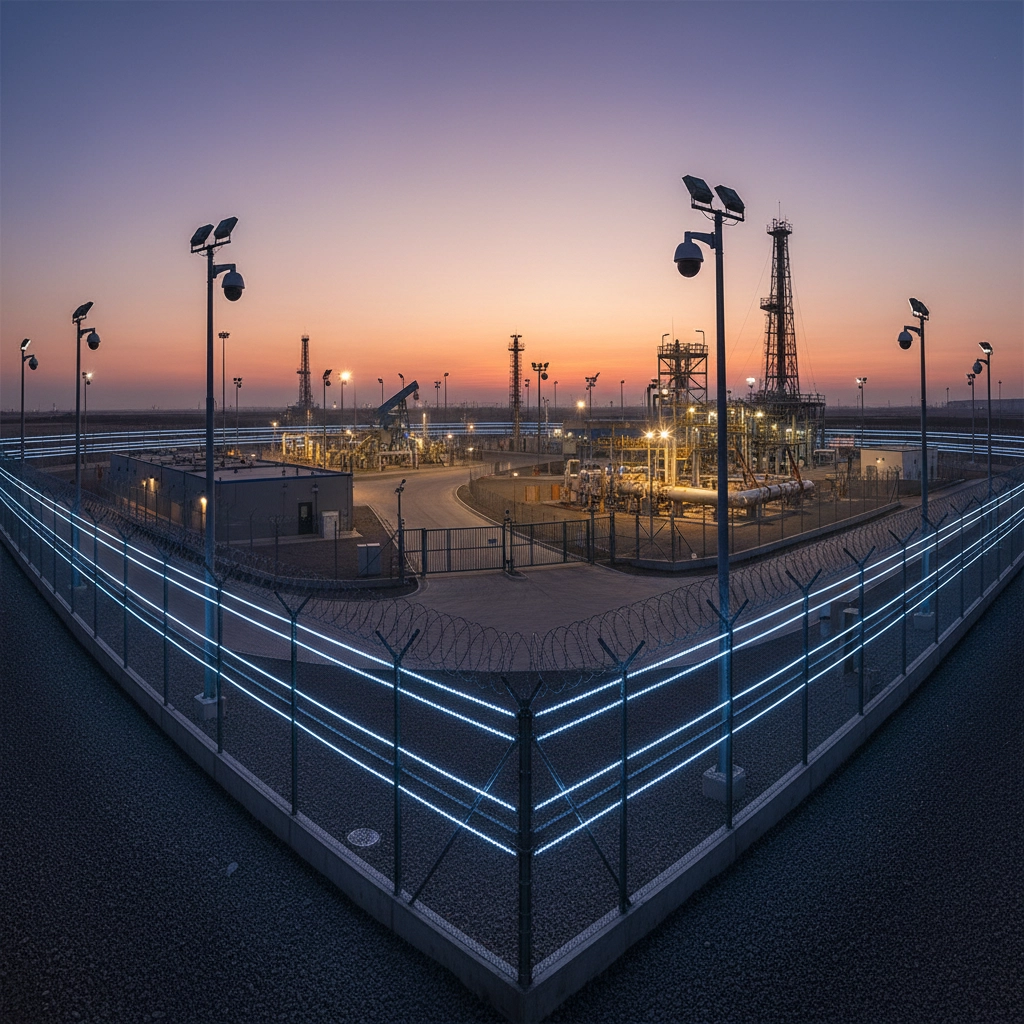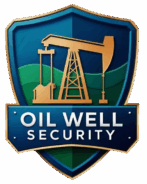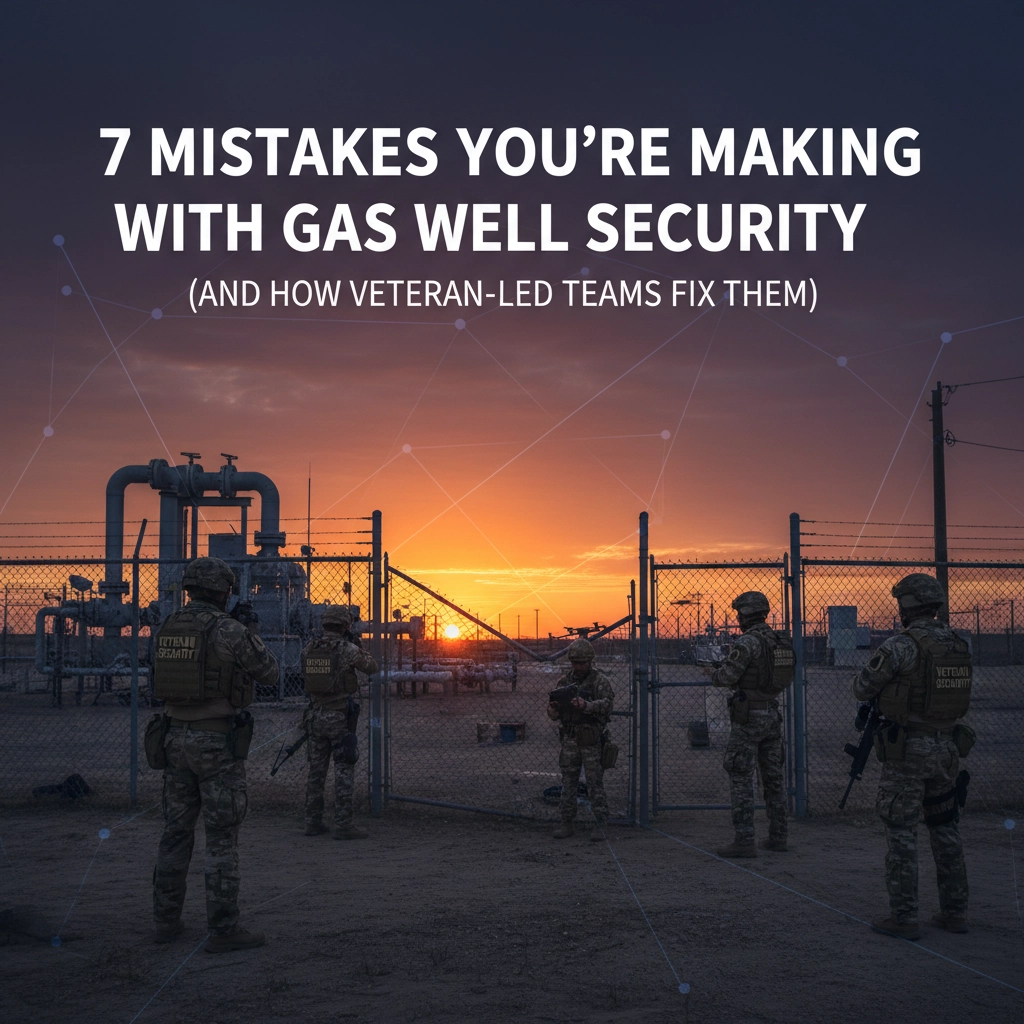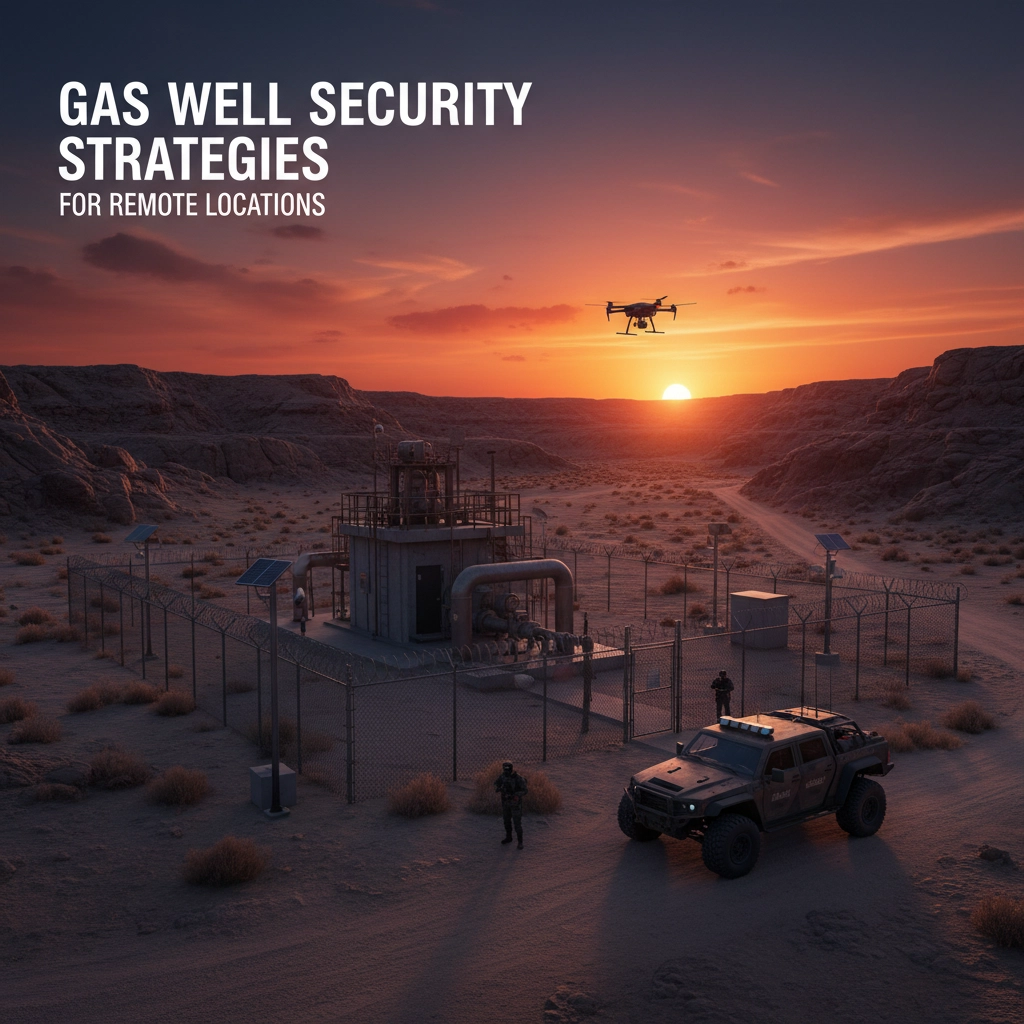Your gas well represents a significant investment: one that deserves protection from the growing threats facing energy infrastructure today. Yet many operators make critical security mistakes that leave their assets vulnerable to theft, vandalism, and operational disruptions. The difference between adequate protection and comprehensive security often comes down to experience and tactical thinking that only veteran-led security teams bring to the table.
If you're wondering whether your current security measures are truly effective, you're not alone. The energy sector faces increasingly sophisticated threats, and traditional security approaches often fall short. Let's examine the seven most common gas well security mistakes and discover how military-trained professionals can transform your protection strategy.
Mistake #1: Relying on Basic Perimeter Security
Your first line of defense shouldn't be your last. Many operators install simple chain-link fencing around their gas wells and consider the job done. This approach leaves massive gaps in your security perimeter that experienced thieves and vandals exploit daily.
Basic perimeter security fails because it operates on visibility alone rather than strategic deterrence. A simple fence might keep out casual trespassers, but it won't stop determined individuals with tools and motivation.
How Veteran-Led Teams Fix It:
Military-trained security professionals understand that effective perimeter defense requires multiple layers working in coordination. They deploy strategic camera placement at key entry points, install motion sensors that trigger immediate alerts, and integrate high-intensity LED lighting systems that activate when perimeters are breached.
Veteran teams also incorporate electric security fencing as both a physical and psychological deterrent. This isn't about creating danger: it's about sending a clear message that your facility takes security seriously. When integrated with access control systems and real-time monitoring, electric fencing becomes part of a comprehensive defense strategy rather than an isolated barrier.

Mistake #2: Underestimating Cybersecurity Threats
Your gas well operations increasingly depend on digital systems for monitoring, control, and data transmission. Yet many operators focus exclusively on physical security while leaving their digital infrastructure vulnerable to cyber attacks that can shut down operations or steal sensitive information.
Cybersecurity isn't just about protecting computers: it's about safeguarding the entire operational ecosystem that keeps your gas wells running efficiently. When hackers target energy infrastructure, they're not just stealing data; they're potentially disrupting critical energy supplies.
How Veteran-Led Teams Fix It:
Veterans bring a mission-critical mindset to cybersecurity that treats digital threats with the same seriousness as physical ones. They implement comprehensive cybersecurity measures including firewalls specifically designed for industrial systems, intrusion detection systems that monitor network traffic 24/7, and encrypted communications that protect sensitive operational data.
Military-trained professionals understand the importance of regular system updates and patches, network segmentation that isolates critical systems, and access control protocols that ensure only authorized personnel can access sensitive areas of your digital infrastructure. They don't just install security software: they create a cybersecurity culture that makes your entire operation more resilient against digital threats.
Mistake #3: Using Inadequate Surveillance Systems
Many gas well operators install a few cameras and call it comprehensive surveillance. This approach creates dangerous blind spots and fails to provide the real-time intelligence you need to respond effectively to security incidents.
Inadequate surveillance systems often suffer from poor camera placement, insufficient coverage of critical areas, and lack of intelligent monitoring capabilities that can distinguish between normal activity and potential threats.
How Veteran-Led Teams Fix It:
Veteran security professionals approach surveillance with tactical precision, treating each camera as a strategic asset in your overall security network. They deploy 24/7 video surveillance systems with intelligent video analytics that automatically detect suspicious activity and alert security personnel immediately.
Military-trained teams understand sight lines, coverage overlaps, and blind spot elimination in ways that civilian security installers often miss. They position cameras to cover perimeters, entry points, storage facilities, and control rooms while ensuring redundant coverage that maintains security even if individual cameras fail.
The veteran advantage extends to surveillance analysis: military-trained professionals can quickly assess video footage, identify potential threats, and coordinate rapid response measures based on years of security experience in high-stakes environments.

Mistake #4: Neglecting Access Control Systems
Controlling who enters your gas well facility shouldn't rely on locks and keys alone. Many operators use outdated access control methods that create security vulnerabilities and fail to provide detailed records of facility access.
Traditional access control fails because it doesn't adapt to changing security needs, provides no real-time monitoring capabilities, and offers limited ability to revoke access quickly when personnel changes occur.
How Veteran-Led Teams Fix It:
Military-trained security professionals implement sophisticated gate access control systems with credential readers, license plate recognition technology, and remote management capabilities that prevent unauthorized vehicle and pedestrian access.
Veteran teams understand that access control extends beyond just entry points: they create comprehensive protocols that track personnel movement throughout your facility, maintain detailed logs of all access attempts, and provide immediate alerts when unauthorized access is attempted.
The military mindset brings discipline to access control that ensures consistent implementation and regular protocol updates. Veterans don't just install access control systems; they create access control cultures that make unauthorized entry significantly more difficult and detectable.
Mistake #5: Ignoring Remote Site Vulnerabilities
Remote gas wells present unique security challenges that many operators underestimate. The isolation that makes these sites valuable for energy production also makes them attractive targets for theft and vandalism while creating response time challenges for security teams.
Remote site vulnerabilities multiply when operators rely on periodic check-ins rather than continuous monitoring, leaving extended windows of opportunity for criminal activity.
How Veteran-Led Teams Fix It:
Veterans understand remote operations from their military experience and apply proven strategies to gas well security. They deploy surveillance personnel to monitor drilling rigs and equipment stacks at remote sites, using mobile trailer setups or drilling rig installations equipped with reliable power supplies and communication systems.
Military-trained professionals excel at creating self-sufficient security operations that can function effectively even when isolated from immediate backup. They establish communication protocols, emergency response procedures, and supply chains that ensure consistent security coverage regardless of location challenges.
The veteran approach to remote security includes regular patrol schedules, drone surveillance capabilities, and rapid response protocols that minimize the time between threat detection and security intervention.

Mistake #6: Skipping Professional Security Personnel
Many gas well operators rely on general security guards or part-time personnel who lack the specialized training and mindset necessary for protecting critical energy infrastructure. This approach leaves gaps in threat assessment, emergency response, and ongoing security management.
Generic security personnel often lack the tactical thinking, threat assessment capabilities, and emergency response training that gas well security requires. They may provide a security presence, but they don't provide security expertise.
How Veteran-Led Teams Fix It:
Military veterans bring a unique combination of tactical training, leadership experience, and mission-critical thinking to gas well security operations. Their military background provides natural advantages in threat assessment, crisis management, and coordinated response activities.
Veteran security professionals understand the importance of continuous training, regular protocol updates, and maintaining readiness for various security scenarios. They don't just respond to incidents: they actively work to prevent them through proactive monitoring and strategic security positioning.
The discipline and attention to detail that military service develops translates directly into more effective security operations. Veterans understand that protecting critical infrastructure requires constant vigilance and professional dedication that goes beyond simply watching monitors or walking perimeters.
Mistake #7: Failing to Integrate Security Systems
Your security measures should work together as a coordinated defense network, not as individual systems operating in isolation. Many operators install various security components without creating integration that maximizes their effectiveness.
Non-integrated security systems create response delays, communication gaps, and missed opportunities to leverage multiple security measures simultaneously when threats are detected.
How Veteran-Led Teams Fix It:
Military-trained security professionals understand systems integration from their experience with complex military operations that require multiple components working in perfect coordination. They create integrated security networks where cameras, sensors, access controls, and personnel communicate seamlessly.
Veterans design security systems that provide centralized monitoring capabilities, automated response protocols, and comprehensive incident documentation. When one security component detects a threat, the entire system responds immediately with coordinated measures that maximize protection effectiveness.
The military mindset brings strategic thinking to security integration that considers not just individual components, but how those components work together to create comprehensive protection that's greater than the sum of its parts.
Protecting Your Investment with Professional Expertise
Your gas well security deserves the same level of professional expertise that protects our nation's critical infrastructure. The difference between adequate security and comprehensive protection often comes down to the experience, training, and tactical mindset that veteran-led security teams bring to energy infrastructure protection.
Don't let common security mistakes leave your valuable assets vulnerable to threats that professional security measures can prevent. The investment in veteran-led security services pays dividends through reduced theft, minimized operational disruptions, and peace of mind that comes from knowing your facilities are protected by professionals with proven experience in high-stakes security operations.
For comprehensive gas well security solutions designed and implemented by veteran-led teams, contact Oil Well Security at info@oilwellsecurity.com or call (970) 465-2525. Your energy investment deserves protection that matches its importance to your operations and the communities you serve.



